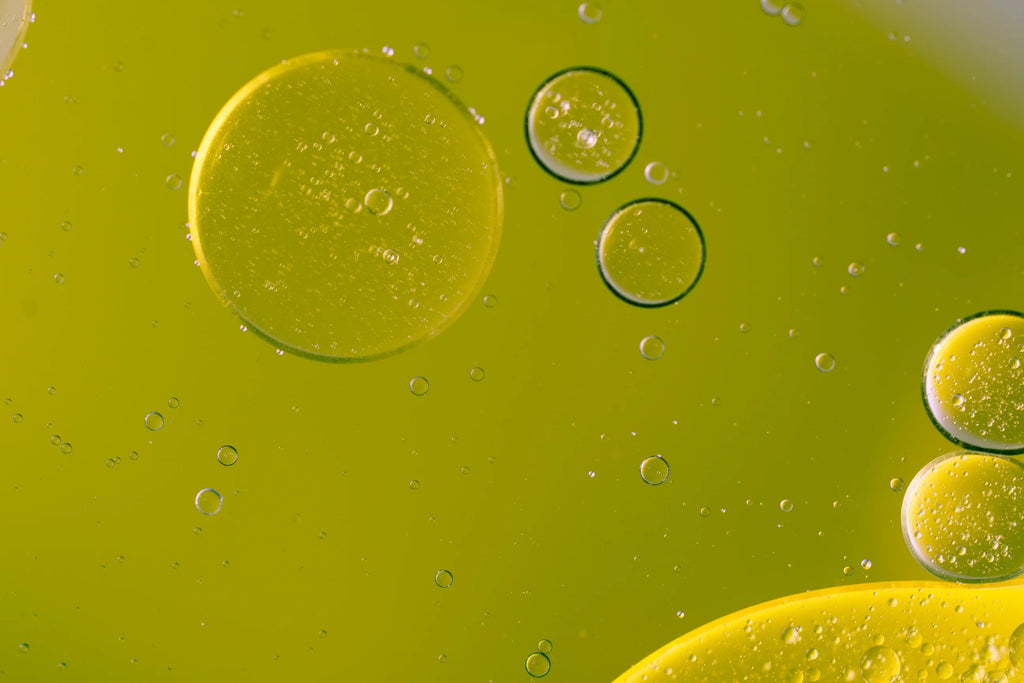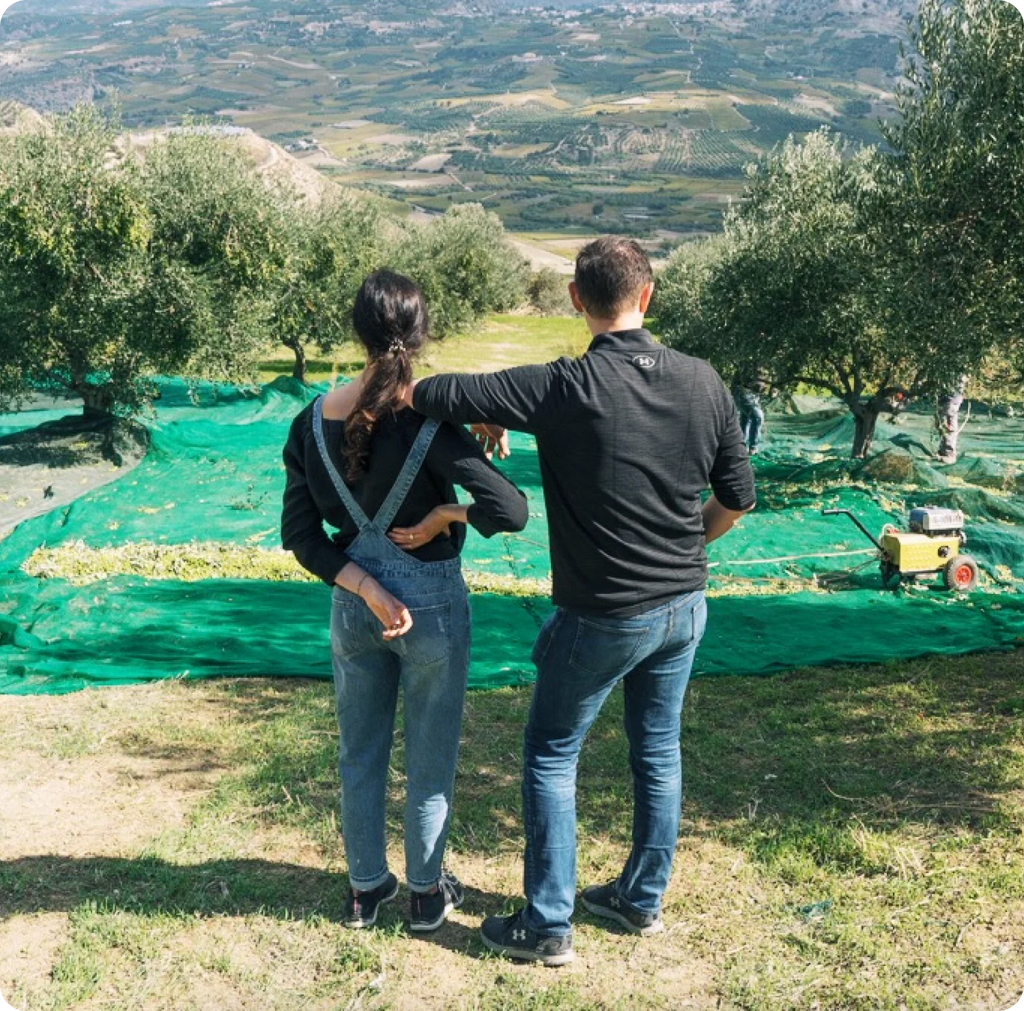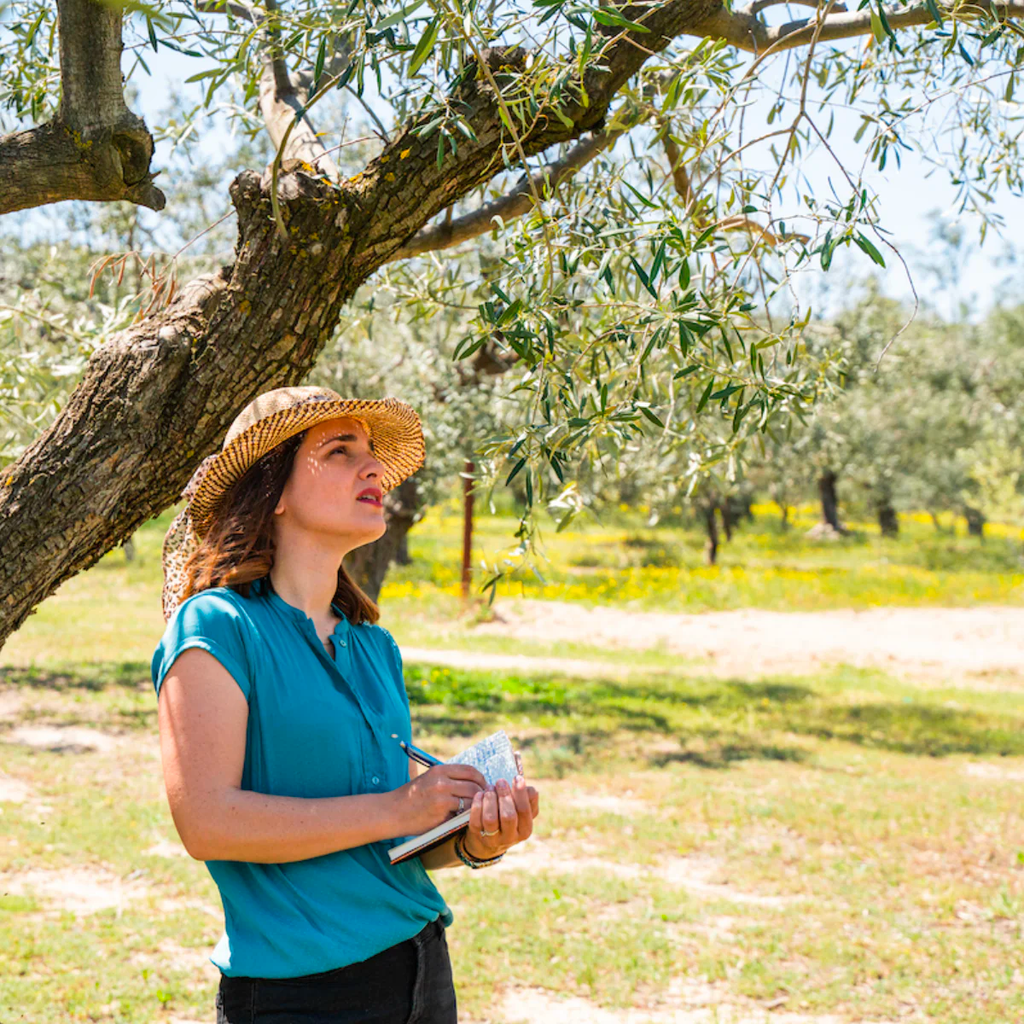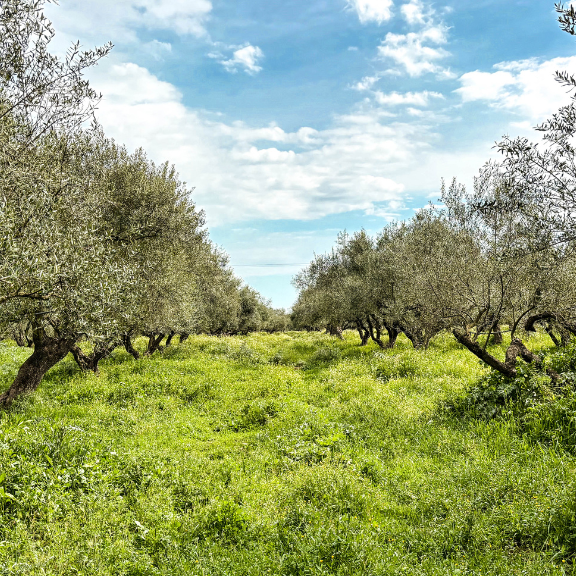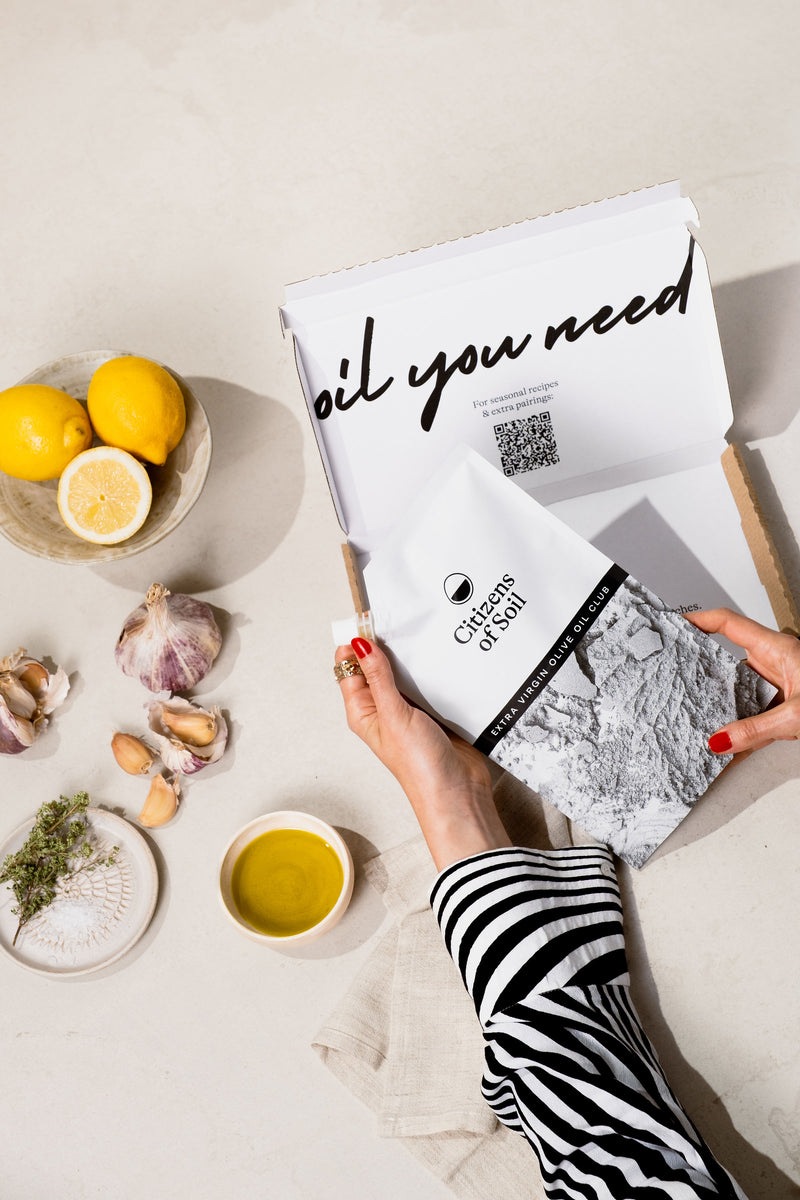How To Taste Extra Virgin Olive Oil: An Olive Oil Sommelier's Guide
So you think you've got a good one, yeah? The bottle looks lovely, the price makes it feel premium, and there's some nice wording about the quality—but is it actually good? For that matter, is it even really "extra virgin"?
We did a whole post on what to look out for when buying an oil (harvest date, specific details, etc.), but now let's get down to the fun stuff: the taste test.

Pop open that new bottle, and let's explore.
To do this right, you should taste an extra virgin olive oil when it's first opened—not weeks or months down the line.
Begin by washing you hands. Especially if you're handling other ingredients in the kitchen, let's go ahead and make sure they're clean and without any particular smell (sorry, no fragrant soaps or hand sanitisers here).
Next, pour a glug of olive oil in a wine glass or something similar. Enough for a couple of sips.
If we're going by the official rules, we use small, stemless coloured glasses (like the photo above). This is because colour is not an indicator of quality, so says the International Olive Oil Council and most olive oil competitions. However, at home, a small wine glass or something in a similar shape works best.
Now, place one hand over the top of the glass and the other at the bottom to cup it. You're doing two things here: 1) holding in the aromas, and 2) warming up the oil itself.
Start to swirl the oil around the glass, so it's touching all sides and raising the temperature from your hand on the glass. We want it to be close to body temperature, so if the oil has just arrived in winter (your new subscription!) or if it's been in a cold pantry—do this for a few more seconds. And still keep that one hand tightly over the top.
Here comes the magic.
Remove your 'lid' hand here and put your nose right in the glass to take a big whiff. I do something which is a bit full on and cup my nose in the glass just to make sure I get the best hit of the smells.
You can spin the glass and swirl some more, move your nose side to side over it, or even open your mouth a bit as a trick I learned in wine tasting.
Now think about what you smell.
Here's what we're looking for at this phase...
—Fruitiness.
-
Greens like grass and herbs.
-
Vegetables like tomatoes and artichokes.
-
Fruits like bananas or apples.
-
Citrus like lemon.
-
Nuts like almonds.
Now to taste.
Cover again with your hand and give it a swirl. Let's take a small sip, about the size of a teaspoon.
Hold this right at the front of your mouth for a second to it to settle in, then you're going to do something silly...
You're going to "aerate it" as you would with wine or tea in a proper tasting. In practice, this means sucking back the oil along the side of your mouth.
You'll open your mouth here to the start of a smile and suck in air along the side, pushing the oil in and back.
Here's what we're looking for at this phase...
—Bitterness.
This sensation can range from a sharp astringency to something slight on the palate. It often gives olive oil that "bold" or robustness that people associate with some oils from the South of Italy or Tuscany.
But it can also be mild with only a small indictation—and that's OK, too! Bitterness isn't required to be strong in an award-winning oil, but it is considered a positive attribute for extra virgin olive oil to have.
Then swallow.
The bitterness is probably more apparent now, if it exists in that particular oil.
You might cough here, and that's just a totally normal reaction to some oils' properties.
So let's talk about what you're looking for now...
—Pepperiness (or often called pungency).
It's that little tingle in the back of the throat or a full-on fit of cough, that represents so much.
The strength of this reaction comes down to variety, harvest, production, and factors like that.
But what it ultimately represents it one of the most magical elements in extra virgin olive oil—one that *only* exists in virgin oils and not ones that have been refined...
Oleocanthal.
This is very special polyphenol compound found in only in virgin olive oil, which is a strong antioxidant that "shares unique perceptual and anti-inflammatory characteristics with Ibuprofen." It's *very* special.
After you feel the pepper (or not), pause and get a feel for what's happening as you breath as you breath back out your nose. This is the moment when you'll experience a "retronasal sensation". Here, the fragrance and flavour from the oil make their way to the back of your throat—the place where smell and taste come together!
Of the holy trinity of extra virgin olive oil—fruitness, bitterness, and pepperiness, the main one that an oil absolutely must have to be *extra* is fruitiness.
But often having all three of these elements exist in some tone or another, and particularly in balance, is what makes a stand-out oil.
An oil that doesn't bring you any fruity gifts but just hits with a peppery aftertaste isn't right. Same from all bitter but nothing on the nose.
The balance of these qualities—in a delicate way to compliment loads of foods or in a bolder way to direct the dish—is what you should be looking for.
Once you've found an oil you like, then you can start trying it up against others. When you have an assortment of oils like you would vinegars or other condiments, you can start playing with which ones compliment which dishes and when to cook with what.
It's not until you've actually smelled and sipped your EVOO on its own that you actually know A) if it's fresh, and B) how you should use it. What do those aromas inspire you to make?
But it all starts with this: knowing what to look for in and oil and making sure you've got a keeper.
—Sarah Vachon, founder & olive oil sommelier 🕊
Shop the blog


